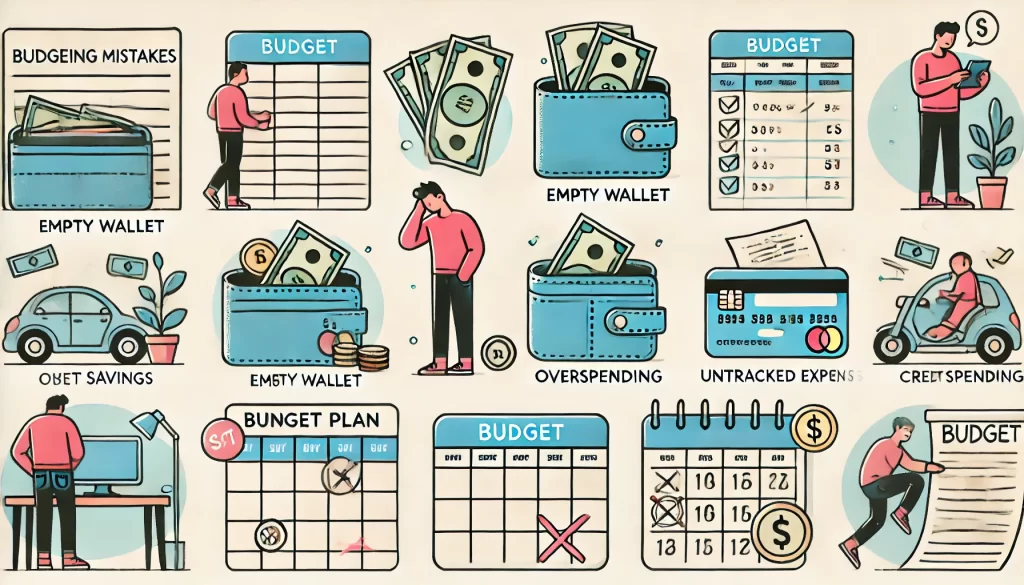Every day, we all wonder: Where does all the money go? Financial educator Yanely Espinal shows us the truth. She talks about common budgeting mistakes that hurt our money like hidden thorns.
Imagine trying to manage money without a plan. That’s what it’s like without a budget. Many people make this mistake.
Espinal uses smart budgeting tips to help us. She says not knowing how we spend money is a big mistake. We might miss important things because of it.
Having no emergency fund is like sailing without a life vest. When unexpected things happen, we can lose stability. It’s hard to tell what we really need versus what we want.
Does your budget say you should spend $800 a month on food for your family? But your bank statements tell a different story? You’re not alone. With Espinal’s help, we can fix these mistakes and make our money work better.
Let’s aim to save an extra $100 a month. Small steps can lead to big changes. We can use 50% for needs, 30% for wants, and 20% for savings and debt.
Let’s work towards financial clarity and security. Recognizing our money mistakes is the first step to a better future. With Espinal’s advice, we can avoid these common budgeting errors and become more financially literate and independent.
Understanding the True Cost of Loans
In today’s world, knowing the real cost of loans is key to good money management. This is true for mortgages, car loans, or personal loans. Understanding interest rates and repayment terms can help you avoid big budgeting pitfalls to steer clear of.
Why Loans Aren’t “Free Money”
Financial expert Yanely Espinal says loans are not just quick cash. They come with interest, making them a big financial weight. Sadly, almost 1 in 4 U.S. adults have no savings for emergencies, showing the dangers of sudden money needs.
Comparing Lender Interest Rates and Terms
Looking at different lenders’ offers is very important. Espinal notes that credit unions often have better rates than banks. This is a smart financial planning tip to get a loan that’s right for you. Also, over half of Americans can’t save for a $1,000 emergency, making careful borrowing even more crucial.
The Long-Term Impact of Debt
Debt can cause long-term financial problems. The interest can add up, making it hard to pay back. Almost 8 in 10 Americans don’t use a budget, but experts say it’s important to keep track of your money to avoid debt problems.
Assessing Risks in Co-Signing Loans
Co-signing a loan comes with big risks and big responsibilities. Almost 38% of co-signed loans cause problems for the co-signer. This shows why you must think carefully before agreeing to co-sign.
Loans like private student loans, auto loans, and payday loans can hurt cosigners a lot. They need smart budgeting tips to avoid trouble.
Co-signing can hurt your finances right away. It can make your debt-to-income ratio go up. If the main borrower doesn’t pay, you could face legal issues. This can badly hurt your credit score and make it hard to get credit later.
Before co-signing, check the borrower’s credit report. Look at their credit use and payment history. This helps you see if they can pay back the loan without hurting your finances.
Also, high interest rates on loans can trap both you and the borrower in debt. This is why it’s key to avoid budgeting errors.
Look for other ways to help the borrower without risking your money. You can help them learn about money and improve their credit score. This way, you keep your finances safe and help the borrower too.
Co-signing a loan is a big decision. It can change your financial situation a lot. By being careful and doing your homework, you can protect your money and the borrower’s. This way, you all can have a better financial future.
5 Common Budgeting Mistakes to Avoid
Knowing common budgeting mistakes to avoid helps a lot. We’ll look at areas where smart planning can help. This is based on studies and financial planning tips.
One big mistake is not planning for unexpected costs. People who don’t plan for these costs often run out of money. It’s important to track all money coming in and going out.
Making Informed Investment Choices
Don’t invest based on emotions or trends. Experts say to choose long-term, well-researched investments. Putting most money in safe, low-risk investments helps it grow steadily.
Creating a Sustainable Lifestyle Budget
Budgeting is about finding a balance. Too strict budgets can lead to overspending. It’s better to have some room for fun and flexibility.
Recognizing the Power of High-Yield Savings
High-yield savings accounts fight inflation well. They offer higher interest rates than regular savings. Adding these to your plan helps your savings grow faster.
To do well with money, it’s key to avoid these common mistakes. By making smart investments, planning for surprises, and balancing spending, you can secure a solid financial future.
The Pitfalls of Lifestyle Creep
Lifestyle creep is a big problem for money management, especially when you make more money. It’s important to deal with it to follow money management best practices and stay financially healthy. Let’s explore how to understand and control this sneaky issue.
Lifestyle creep happens when your spending goes up as your income does. This can stop you from saving for the future and cause financial trouble.
Identifying Non-Essential Expenses
To fight lifestyle creep, look at your spending closely. Find out what you don’t really need. It might be that extra coffee or a subscription you don’t use. Cutting these costs helps you stay disciplined and follow financial planning tips for smart spending.
Adjusting Your Savings Rate with Income Changes
When you make more money, save more of it. This way, you avoid spending more and grow your savings. Think about saving for retirement or investing in different things to secure your future.
Being careful about lifestyle creep and making smart money choices can protect you. By saving more, you build a safer and more fulfilling life. Making these changes helps you avoid financial traps and follow financial planning tips for a better future.
Planning for the Unexpected: Emergency Funds and Flexible Budgeting
When life throws unexpected challenges our way, being prepared financially can make all the difference. Smart budgeting tips often emphasize the importance of having a flexible budget and an emergency fund. This helps protect against unforeseen expenses.
Most financial advisors recommend saving between three to six months’ worth of living expenses. This reserve acts as a buffer. It helps you avoid using long-term savings or falling into high-interest debt during emergencies or job losses.
Creating a realistic budget means including irregular expenses like annual memberships, holidays, or unexpected car repairs. Neglecting these can disrupt even the best-planned budgets. It can lead to overspending or the need to use credit inappropriately.
Automating your savings can help maintain an emergency fund without feeling the pinch. Modern banking features allow for automatic transfers into savings accounts. This builds up reserves without extra effort or forgetfulness.
By embedding smart budgeting tips into your financial strategy, you can create a robust financial safety net. Remember, building and maintaining an emergency fund is not just about protecting your present. It’s also about securing your future financial wellbeing from potential setbacks.
Conclusion
Avoiding budgeting pitfalls to steer clear of is key. It’s about using smart budgeting tips to keep a stable life. We learned about dangers like co-signing loans and the good of high-yield savings.
These lessons show why we must avoid 5 common budgeting mistakes to avoid. This helps us stay financially well.
Learning and adjusting are important for financial wisdom. Businesses that update their budgets stay ahead. Knowing about cash flow, pricing, and debt is vital for everyone.
Tools like Fathom help a lot. They make financial planning more accurate than old ways.
For personal or business finance, being accurate and flexible is key. Using Zero-Based Budgeting or getting help from experts is smart. It leads to better planning and choices.
By adding these steps to your money routine, you get stronger. Focus on saving for emergencies and check your budget often. This way, you build a safer financial future.






